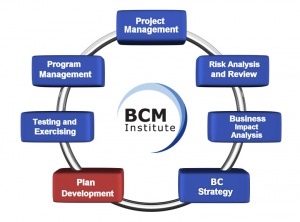Part 4: Crisis Communication Policy v2

Part 4: Crisis Communication Policy

Sample Crisis Communication Policy
- All crises should be reported to a supervisor and the designated crisis management team leader immediately.
- Only the designated spokesperson and backup spokespeople are authorized to release information to the media and to the public. All other staff members should be professional and helpful to the media by connecting them with the spokespeople but will neither speak to the media nor provide any information.
- There should be one designated crisis management team lead person, directing and coordinating all aspects of the organization’s response including managing the messages and the media. There should also be one designated spokesperson who actually interacts with the media and other inquirers. In some cases, particularly in the event of a “small crisis,” the two may be the same person. In others, the jobs may be divided to facilitate efficient handling of the situation. Most likely, but not necessarily, the two roles will be filled by the head of corporate communications and the CEO, respectively.
- All comments should be guided by professionalism and transparency, and serve to mitigate the crisis while reinforcing the leadership role of the Insert Organisation here
- "No comment" is never an acceptable response. If an answer is unknown or cannot be immediately answered, make note of the question, tell the inquirer you will get back with him/her, and do so. If the question cannot be answered due to a policy (such as sharing personnel information) let the inquirer know that.
- Personnel matters are to remain confidential.
- When possible, responses should be proactive, responsive, and action-oriented.
- The organisation recognizes the importance of media relations to public trust. In times of crisis, maintaining effective media relationships will be particularly critical in bolstering public confidence in the sector as a whole.

Instruction to BL-CC-3/5 M2 Participant
This section is for Module 2 participants attending the BL-CC-3 Module 2 Facilitated workshop, this is the additional instruction to complete your CC Plan assignment.
Refer to the text of each of the sections within this page which are highlighted in italics for further explanation when attempting the Module 2 assignment.
In this set of guidance notes for the CC plan, the displayed content provides the participants with the objectives and content for the specific section of the plan. It is essential to note the CC Plan differs as it can be developed as a standalone plan or as a CM team member or sub-unit plan within the crisis management or business continuity plan.